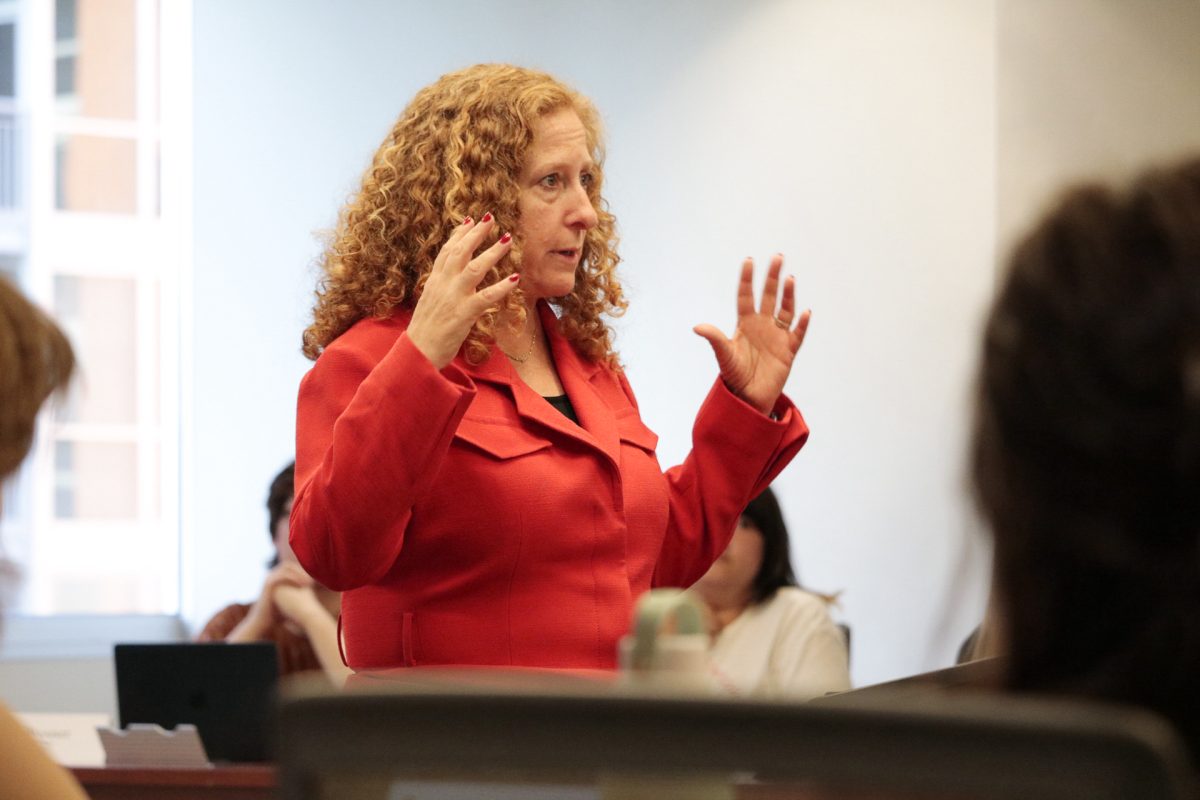Records show that 50 patients filed complaints against University Health Services between February 2011 and February 2012, an increase compared to last year’s numbers.
According to the records obtained by The Badger Herald, the main grievances included professional attitude among staff and issues with scheduling appointments online.
The complaints increased from 2010 to 2011, when patients filed 33 formal complaints against UHS. The most common patient complaints from this time period were alleging professional misconduct and a frustrating online appointment scheduling system. Patients also complained about UHS receptionists and medical trainees for incompetency and rudeness.
Although there was an increase of complaints this year, a majority of the patients treated by UHS care providers reported no problems with their experiences. The most recent data shows 93 percent of patients were satisfied with their visit to UHS, according to UHS’s own survey taken from 2010-2011.
UHS Executive Director Sarah Van Orman said she would like to see the complaint number drop to zero and is happy students are using UHS’s online complaint system to bring attention to instances where UHS could do better in serving patient needs.
“… [Students] do have a voice, and we want to hear from them if they are unhappy,” Van Orman said.
The number of complaints alleging misconduct has been increasing incrementally since the Herald began requesting the complaint documents in 2008, with 13 misconduct complaints filed in 2008-09 and 15 filed last year. This past year, a total of 16 patients claimed to have been subjected to unprofessionalism by UHS staff.
A handful of these complaints come from patients utilizing the Women’s Health Clinic, Sexual Health Clinic or psychiatric services.
After one woman asked a receptionist in the Sexual Health Clinic if UHS offers anal pap smear, she said the staffer replied to her questions with “long, awkward pauses and weird tones/phrasing.”
“I admit I was probably a little more blunt about what I wanted and what I needed than most students are, … but by the end of the call I felt pretty uncomfortable and a little embarrassed, like I needed to explain why I was asking,” the woman recounted to a friend in a Facebook message, which the friend then forwarded to UHS with the woman’s permission.
Van Orman said the squeamishness of the sexual health providers at UHS is not in question, and they are trained to listen to any concerns raised by patients. Receptionists, though instructed to field calls from potential patients, would not be able to answer questions about a medical procedure.
“[A receptionist] in most cases would say you should make an appointment and talk to a provider about that,” Van Orman said.
The woman did add in the text of the complaint that all her experiences with UHS, except for this one, have been positive.
Another complaint described one staff member who allegedly discouraged the patient from pursuing short-term counseling services at UHS. The staff member reminded the patient that continuing to seek “help in times of crisis and ongoing treatment won’t change that fact that [they] can’t deal with [their] issues in crisis.”
The staff member also referred to the patient’s medical history candidly, the complaint said.
“At one point, she mentioned that I called the crisis line and that I was ‘practically suicidal,'” the complaint read. “I felt that was an [sic] extremely unprofessional and judgmental.”
More patients complained after meeting with UHS psychiatric staff, too. One patient wrote they went to UHS for help getting depression medication. A staff member called them “lazy, an alcoholic and irritable.”
“When asked how I felt about my body I confidently replied, ‘Good. I like myself,'” the complaint read. “[The staff member] responded with, ‘You shouldn’t. You’re overweight.'”
The patient suggested UHS should not allow the staff member to see patients anymore.
A large portion of complaints also concerned reception staff and appointment scheduling.
“I have called [about] 11 times and have been placed on hold every single instance,” one complaint read. “I am a male and went so far as to call the women’s clinic simply to speak to someone, but I was again sent directly to hold for a long period of time.”
Aside from trouble scheduling an appointment through reception, a handful of complaints criticized UHS’s website for being buggy and confusing.
Links claiming to lead to one page went to another. Activating a MyUHS account returned error messages for two patients. Another argued UHS should use the university’s NetID system instead of requiring a separate account.
Only one complaint of a misdiagnosis was filed, down from eight complaints in 2008-09. There were no outstanding cases of misdiagnosis reported on last year. The patient’s parents filed the complaint that said UHS advised psychiatric counseling for their daughter, disregarding a doctor at UW Hospital who diagnosed her with a serious infection behind her eye. The patient, according to her parents’ complaint, had to go elsewhere to seek care at “great expense of time, effort and money.”
Other complaints addressed serious missteps in judgment. The details of a woman’s pregnancy were announced to an entire waiting room by a lab technician. One medical student admitted to a patient she was hungover while checking the patient’s vitals.
At least one complaint said the doctor did not wash their hands before touching the patient. Another said the person administering the patient’s flu shot did not wear gloves and had not worn gloves for a few previous patients.
UHS redacted student names from the documents to protect patient confidentiality and to comply with the Family Education Rights and Privacy Act that prohibits public learning institutions from releasing certain student data.
UHS also redacted the names of doctors implicated in the complaints because they said, in consultation with UW’s legal consul, they believe doing so would jeopardize the complaint process and risk patient confidentially by announcing their health care provider.
Van Orman said she guarantees the complaints do not implicate the same health care provider multiple times. All care providers accused in the complaints were spoken with in accordance with UHS’s complaint policy.
The policy also requires UHS to follow up with patients who submitted complaints and apologize for the lapse in judgment or misunderstanding between the patient and the UHS staff member.
“The people that work here, we want people to be happy with our services,” Van Orman said. “We want people to feel like we do a good job and we take the complaints very seriously.”
Complaints can be submitted electronically online at www.uhs.wisc.edu/contact/feedback or physically using a paper complaint form found in UHS’s waiting rooms.


















